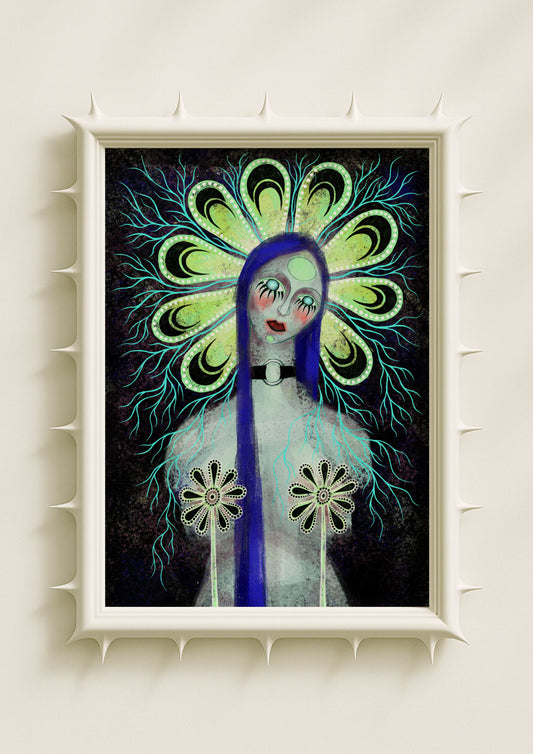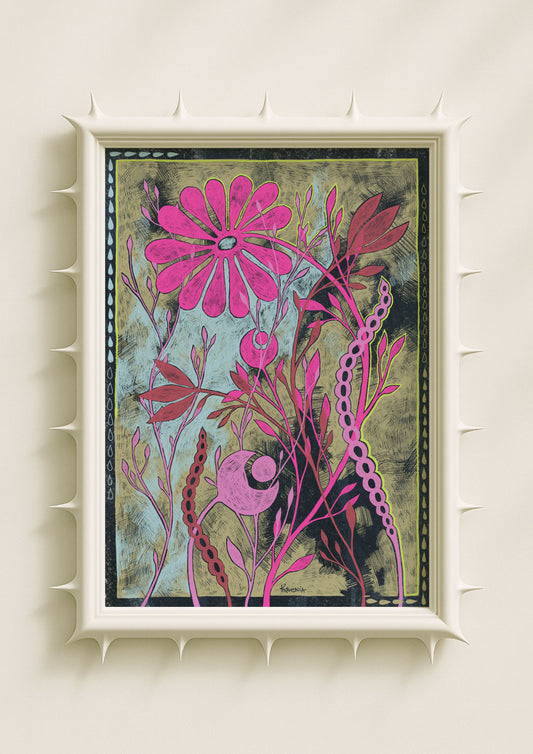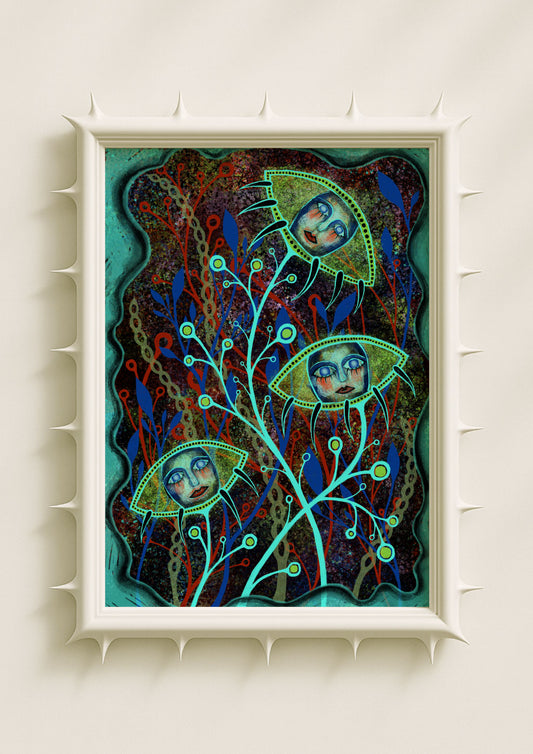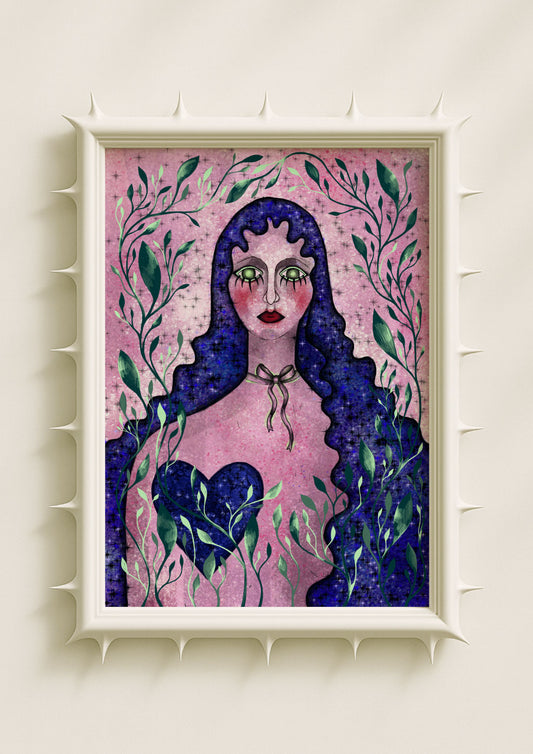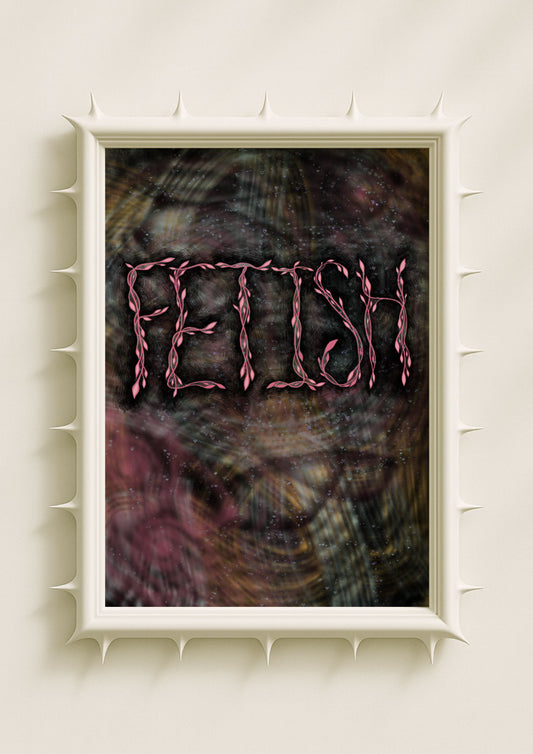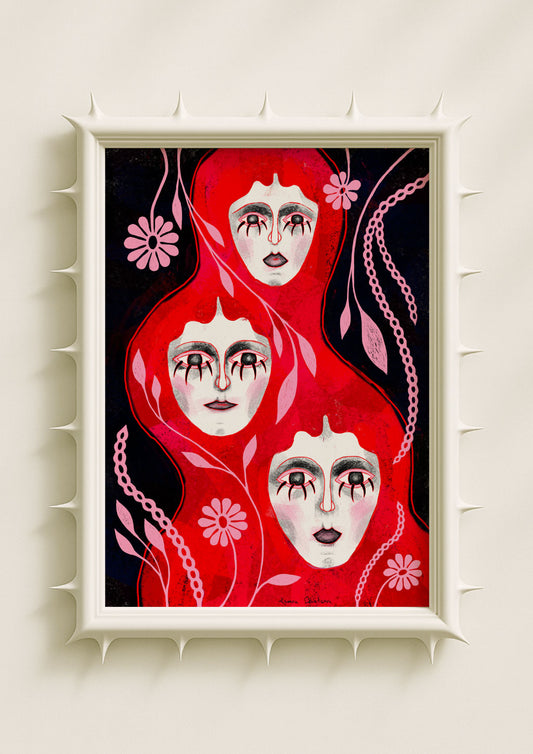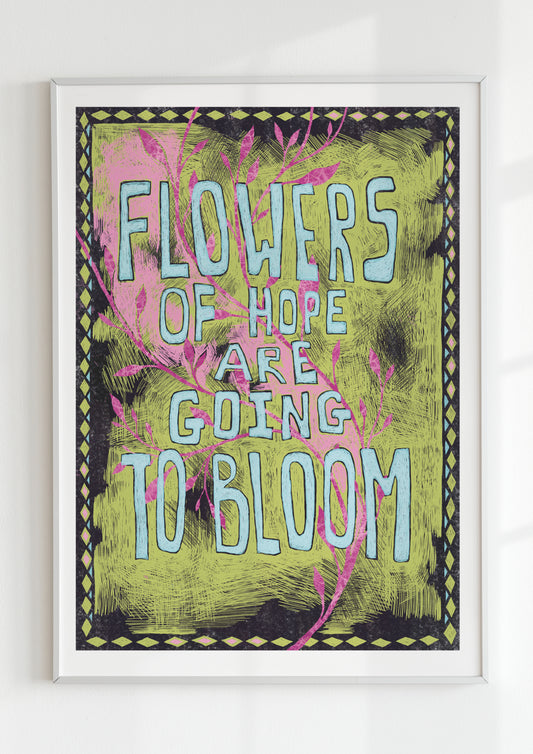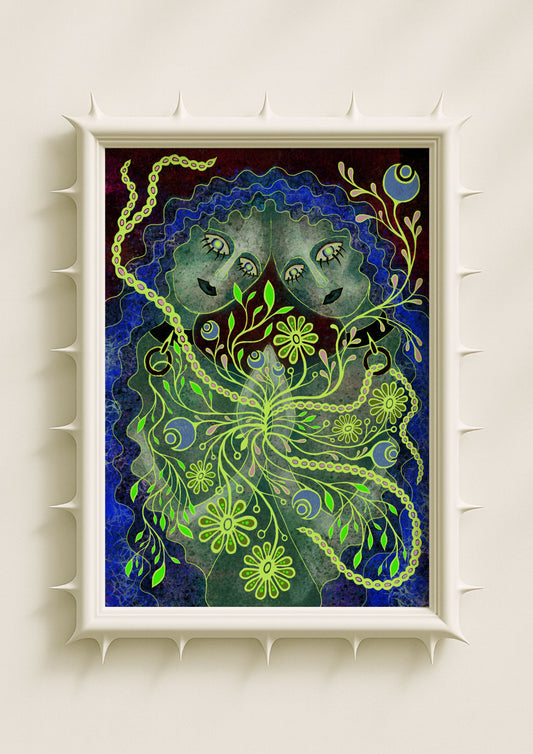Every friendship has a color palette. Some feel like soft pink mornings, others like deep indigo nights. When I think about giving gifts, I often start from that — from the emotional tone that defines the person. Choosing art for someone is a bit like choosing a mirror. It doesn’t have to reflect them literally, but it should echo something true.
I’ve always loved the idea of giving art as a gift because it’s both personal and lasting. It doesn’t ask to be used or worn — it simply exists, quietly shaping a space. A wall art print or a symbolic poster feels intimate, but never intrusive. And when chosen thoughtfully, it can capture the mood of a person better than any object could.
The Pastel Soul
There are friends whose presence feels like calm air — open, kind, effortlessly light. For them, pastel tones are more than decoration; they’re emotional temperature. Soft pinks, pale blues, and muted greens create the kind of atmosphere where thoughts can breathe.

When I paint in these tones, I often think of early spring — the first fragile colors that appear before the world wakes fully. In interiors, these hues bring quiet focus and optimism. A pastel surreal print with botanical shapes or floating figures can be a gentle reminder of clarity and renewal.
Psychologically, pastel colors are associated with safety and ease. They lower tension and invite introspection — perfect for a friend who seeks harmony or calm after chaos.
The Dreamer and the Romantic
Some people carry nostalgia like perfume. They love beauty that feels slightly anachronistic — details that recall old films, art nouveau curves, or vintage portraiture. For them, an art gift should feel tactile and emotional.

I think of artworks filled with decorative florals, eyes, or symbolic faces — pieces that look like they belong to another century, yet feel strangely modern. These gifts work well in warm, moody interiors — spaces that value texture, memory, and emotion over minimalism.
When I create art in this tone, I often draw from the rituals of beauty — makeup, hair, gesture — not as vanity but as storytelling. The feminine, the theatrical, the self-aware. A gift like this doesn’t just decorate a wall; it becomes part of the person’s mythology.
The Dark Aesthetic
Then there are friends who live closer to the night — whose taste runs toward intensity, drama, and symbolism. They’re drawn to the shadows, to the beauty that unsettles.

For them, art should not comfort but challenge. Think of deep reds, acidic greens, or violet-black contrasts — colors that vibrate rather than soothe. The Gothic aesthetic isn’t about morbidity; it’s about emotional honesty. It’s the courage to show complexity, to wear melancholy as elegance.
I often borrow from pagan and folkloric imagery here: serpents, eyes, roots, tangled flowers. These motifs come from ancient art where beauty and danger coexisted. A poster like that makes a perfect gift for someone who sees art as a form of rebellion — or for those who find peace in mystery.
The Modern Mystic
There’s also a type of friend who exists somewhere between worlds — spiritual, intuitive, slightly surreal. They collect objects not for decoration but for meaning. For them, a symbolic art print can feel like a talisman.

Think of soft surrealism — floating botanicals, intertwined forms, dreamlike eyes. The mystic aesthetic loves balance between sacred and strange. It draws from Slavic pagan symbols, from mythology and trance, but filters it through modern color and composition.
When I design art in this mood, I often mix metallic and matte textures, or use unnatural colors for natural shapes. It’s my way of saying: the invisible world still speaks. A print like that makes a poetic gift — a quiet charm for someone who lives intuitively, guided more by feeling than plan.
Finding the Right Aesthetic for Each Soul
Art gifts are not about taste alone — they’re about perception.
When you give a symbolic print, you’re offering not just color and form, but a kind of recognition. Whether your friend lives in a pastel dream or a gothic fairytale, the right artwork can echo their emotional landscape.

It’s what I love most about this kind of gifting — it doesn’t fade or expire. It stays on a wall, collecting the light of mornings and the shadows of evenings, becoming part of the room’s rhythm.
Because in the end, the best aesthetic gifts are not about matching a style. They’re about understanding the person — their moods, their contradictions, their way of seeing beauty.
